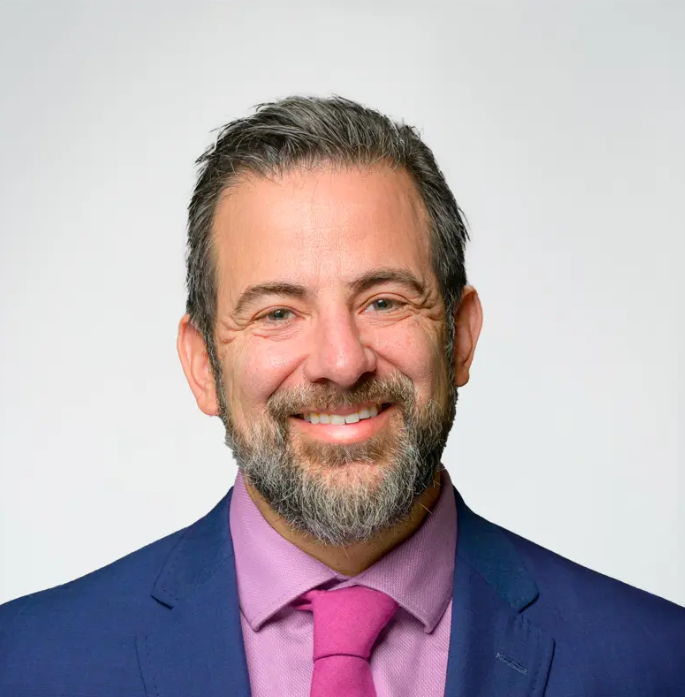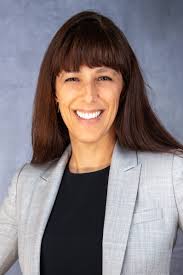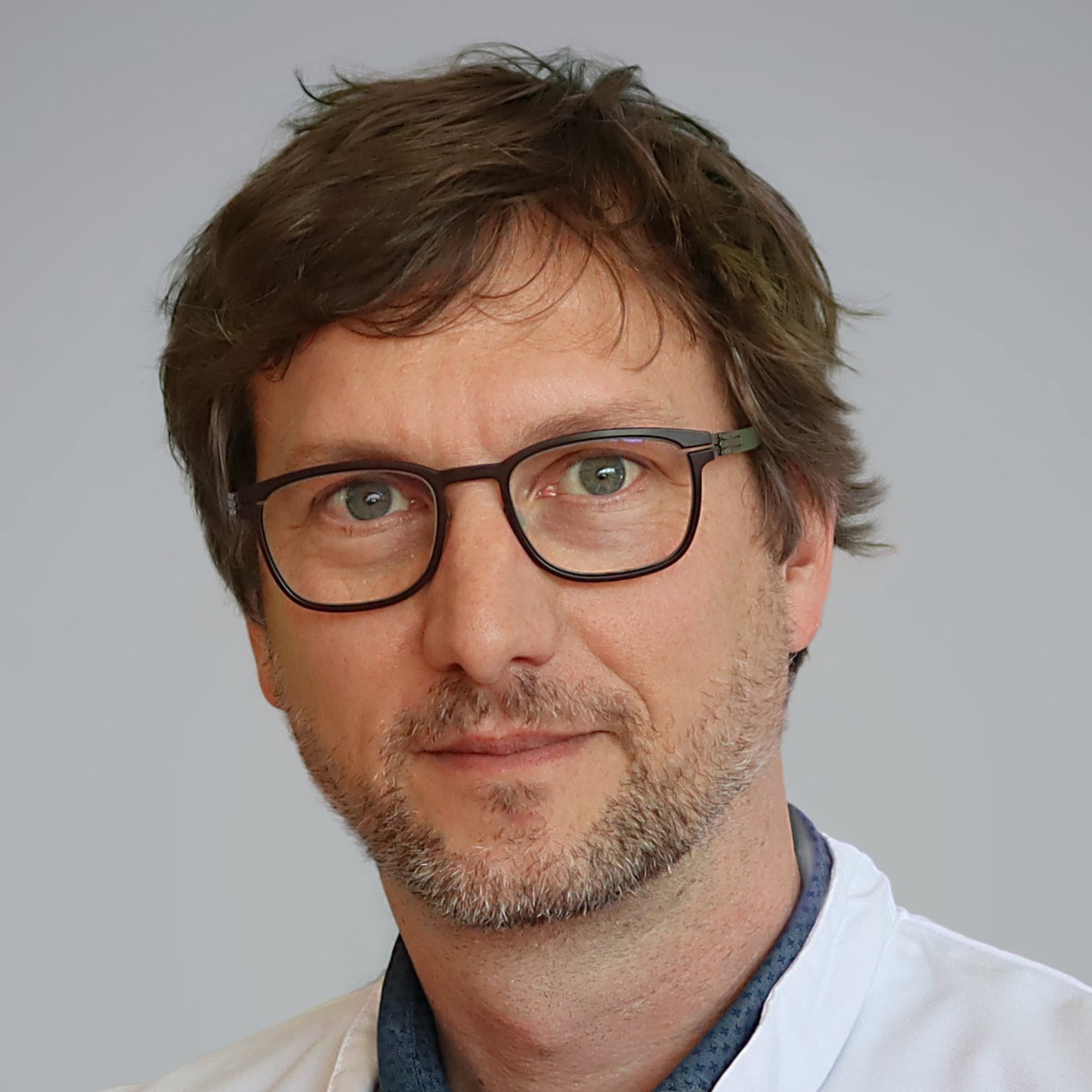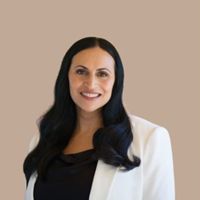touchMEETING HIGHLIGHTS ADVENT symposia 2024: Updates in AD, PN and CSU
Watch highlights of two ADVENT symposia originally presented in San Diego, March 2024.
Dr Lawrence F. Eichenfield outlines how skin barrier dysfunction increases exposure to allergens, increasing the risk of potential sensitization. He then illustrates that the AD clinical burden is substantial for children, who are at increased risk of developing other atopic diseases.
To watch the full symposium presentations and more highlights, please click below (external site).
Dr Lawrence F. Eichenfield discusses how the multidimensional disease burden of moderate-to-severe AD has potential long-term consequences, and how early interventions in the initial stages of AD may reduce the likelihood of future development of multimorbidities.
To watch the full symposium presentations and more highlights, please click below (external site).
Overview & Learning Objectives
Overview
Highlights of two ADVENT symposia originally presented in San Diego, March 2024:
- The Benefits of Early Intervention in AD: More Than Skin Deep
- A Tale of Two Itches: Bridging the Gap With Type 2 Inflammation in PN and CSU
Learning Objectives
1. The Benefits of Early Intervention in AD: More Than Skin Deep
Many atopic dermatitis (AD) treatment goals focus on clinical manifestations, so that if a patient is free of lesions, their disease is considered well controlled. However, the inflammatory process underlying AD reaches far beyond the skin, affecting patients in unique ways at different stages of their lives. Education on the importance of treating AD beyond the skin and altering the treatment approach to fit the individual patient will help improve clinical management and reduce long-term patient burden.
After watching the full symposium, participants should be better able to:
- Present new data on the systemic burden of underlying type 2 inflammation in AD within and beyond the skin across age group
- Discuss the cumulative life impact of uncontrolled AD and the importance of early intervention and disease control across age groups
- Relate perspectives on management of moderate-to-severe AD and the potential for disease modification
Watch the full symposium at ADVENTprogram.com (external site).
2. A Tale of Two Itches: Bridging the Gap With Type 2 Inflammation in PN and CSU
Join Drs. Elmariah, Kim, and Metz as they explore the latest research on neuro-immune mechanisms driving chronic itch and inflammation in prurigo nodularis (PN) and chronic spontaneous urticaria (CSU).
After watching the full symposium, participants should be better able to:
- Comprehend the unique and significant burdens associated with chronic itch and skin lesions in PN and CSU
- Understand the diverse actions of type 2 cytokines at the neuroimmune axis and how they perpetuate chronic itch and inflammation in PN and CSU
Watch the full symposium at ADVENTprogram.com (external site).
Faculty & Disclosures

Dr Eric Simpson
Oregon Health & Science University, Portland, US
Eric Simpson, MD, MCR, practices medical dermatology with special interests in chronic inflammatory skin diseases and skin cancer. He is actively involved in clinical research and is currently funded by the National Institutes of Health and industry partners to study new approaches to chronic skin disease treatment and prevention.
His collaborations are global in scope, and he has been invited to present his research and approach to patient care at international conferences in Europe, North and South America, and Asia. He has published over 290 scientific articles in several high-impact peer-reviewed journals including the New England Journal of Medicine and The Lancet.
He supports patient advocacy and improving research quality by serving as Co-Chair of the Harmonizing Outcome Measures in Eczema (HOME) – a volunteer group of patients, providers, and other stakeholders whose mission is to improve the quality of eczema research to better suit the needs of patients and policy-makers. He is also serving as Chair of the NEA Research Advisory Committee.
Dr Eric Simpson discloses: Research funding from AbbVie, Acrotech Biopharma Inc, Amgen, Arcutis, Aslan, Castle Biosciences, CorEvitas, Dermavant, Dermira, Eli Lilly, Incyte, Kymab, Kyowa Kirin, National Jewish Health, Leo, Pfizer, Regeneron, Sanofi, and Target RWE. Speaker and/or consulting fees from Advances in Cosmetic Medical Derm Hawaii LLC, AbbVie, Amgen, AOBiome LLC, Arcutis Biotherapeutics, Arena Pharmaceuticals, Aslan Pharma, Boehringer Ingelheim USA Inc, Boston Consulting Group, Bristol Myers Squibb – BMS, Collective Acumen LLC (CA), CorEvitas, Dermira, Eli Lilly, Evelo Biosciences, Evidera, ExcerptaMedica, FIDE, Forte Bio RX, Galderma, GlaxoSmithKline, Gilead Sciences Inc, Incyte, Innovaderm Reche, Janssen, Johnson & Johnson, Kyowa Kirin Pharmaceutical Development, Leo Pharm, Medscape LLC, Merck, MauiDerm, MLG Operating, MJH holding, Pfizer, Physicians World LLC, PRImE, Recludix Pharma, Regeneron, Revolutionizing Atopic Dermatitis Inc, Roivant, Sanofi-Genzyme, Trevi Therapeutics, Valeant, Vindico Medical education, WebMD.

Dr Lawrence Eichenfield
University of California San Diego (UCSD), California, USA
Dr. Lawrence F. Eichenfield is a Distinguished Professor of Dermatology and Pediatrics and Vice Chair of the Department of Dermatology at the University of California San Diego (UCSD) School of Medicine, and Chief of Pediatric and Adolescent Dermatology at Rady Children’s Hospital San Diego. He received his medical degree from Mount Sinai School of Medicine in New York, was a pediatric resident and Chief Resident at Children’s Hospital of Philadelphia and completed his dermatology residency at the Hospital of the University of Pennsylvania.
Dr. Eichenfield has done extensive research and clinical work in atopic dermatitis, acne, psoriasis, and other pediatric inflammatory skin disorders including vitiligo and alopecia. He also has expertise in pediatric infections, vascular lesions and hemangiomas, neonatal dermatology, laser surgery, nevi, and skin signs of systemic disease. He has authored more than 500 published journal articles and chapters, is the senior editor of the textbook Neonatal and Infant Dermatology, and serves on the editorial boards of multiple journals and periodicals.
Dr. Eichenfield directs the Rady/UCSD Eczema and Inflammatory Skin Disease Center and is co-director of the Multidisciplinary Atopic Dermatitis Program. He is past president of the Society for Pediatric Dermatology, a past Board member of the American Academy of Dermatology, founder and past Chair of the Pediatric Dermatology Research Alliance (PeDRA), former Vice President of the American Dermatology Association and chairs the Executive Committee of the Scientific and Medical Advisory Councils of the National Eczema Association. He has chaired and is an active member of the American Academy of Dermatology Atopic Dermatitis Guidelines Taskforce.
Dr Lawrence Eichenfield discloses: Research funding from AbbVie, Amgen, Arcutis, Castle Biosciences, Dermavant, Galderma, Lilly, Ortho Dermatologics, Regeneron, Sanofi-Genzyme. Speaker and/or consulting fees from AbbVie, Amgen, Arcutis, Aslan, Bristol-Myers Squibb, Dermavant, Eli Lilly, Forte, Galderma, Incyte, Janssen, Johnson & Johnson, LEO Pharma, Novartis, Ortho Dermatologics, Pfizer, Regeneron, Sanofi-Genzyme, Target RWE, UCB.

Dr Katrina Abuabara
University of California San Francisco, California, USA
Katrina Abuabara, MD, MA, MSCE is an Associate Professor of Dermatology at the University of California San Francisco. She also holds a secondary appointment in Epidemiology and Biostatistics at the University of California Berkeley’s School of Public Health, and a joint appointment in the new UCSF-UC Berkeley Computational Precision Health Graduate Group.
After earning a master’s degree in sociology from Stanford University, Dr. Abuabara earned her medical degree from Harvard Medical School. She also earned a master of science degree in clinical epidemiology from the Perelman School of Medicine at the University of Pennsylvania, where she completed her dermatology residency as well as a postdoctoral research fellowship in dermatoepidemiology.
Her research examines how environmental and sociocultural factors interact with biological factors to influence chronic inflammatory conditions. She has studied atopic dermatitis disease course and comorbidities, the role of the skin barrier in inflammation and aging, and the impact of environmental microbes and soil biodiversity on allergic diseases.
Dr. Abuabara is a member of the American Academy of Dermatology, American Medical Association, Society for Investigative Dermatology and International Eczema Council.
Dr Katrina Abuabara discloses: Research funding from L’Oreal, Pfizer. Speaker and/or consulting fees from Amgen, Nektar, Sanogi-Genzyme, Target RWE.

Dr Martin Metz
Charité – Universitätsmedizin, Berlin, Germany
Martin Metz, MD, earned his medical degree from Humboldt University Berlin in Germany. He completed an internship and a residency in the Department of Dermatology at the University of Mainz in Germany, as well as a research fellowship in the university’s Mast Cell Research Group. He also completed a research fellowship in the Department of Pathology at Stanford University in the United States. His research efforts over the years have been focused on pruritus and the pathogenesis, diagnosis, treatment, and management of urticaria.
He is the author or co-author of more than 220 peer-reviewed publications, appearing in such highly regarded journals as the Lancet, the New England Journal of Medicine, Nature, Science, and The Journal of Clinical Investigation, as well as the author or coauthor of 22 book chapters. He serves as vice president of the Board of Directors of the German Pollen Information Service Foundation (PID). He is a professor in the Department of Dermatology and Allergology at Charité – Universitätsmedizin in Berlin, where he is also head of translational research and deputy head of clinical trials at Charité’s Institute of Allergology. In addition, he is head of preclinical research of mast cell–mediated diseases at the Fraunhofer Institute for Translational Medicine and Pharmacology (ITMP) – Allergology and Immunology in Berlin.
Dr Martin Metz discloses: Speaker, advisory board member and/or investigator for AbbVie, Almirall, ALK-Abello, Amgen, AstraZeneca, Argenx, Bayer, Beiersdorf, Celldex, Celltrion, Escient, Galderma, GSK, Incyte, Jasper, Novartis, Pharvaris, Pfizer, Regeneron, Sanofi, Teva, Third Harmonic Bio, Vifor.

Dr Sarina Elmariah
University of California in San Francisco, California, USA
Sarina Elmariah, MD, PhD, is a board-certified dermatologist and developmental neuroscientist. She is also Associate Professor and Dermatology Director at the UCSF Centre for Itch and Neurosensory Disorders at the University of California in San Francisco. Her research interests lie in general dermatology, skin cancer detection and treatment, chronic itching disorders, allergic skin reactions and wound healing, and aims to promote innovation and discovery in the neuroimmune cutaneous areas and improve how we characterize, diagnose and manage common skin disorders.
She has published numerous articles and abstracts in dermatology and neuroscience journals, including the Journal of the American Academy of Dermatology and the Journal of Neuroscience. Additionally, she has authored many online publications and a book chapter, and is a reviewer for many top-tier dermatology and scientific journals. She has also received numerous awards, including the Saul Winegrad Award for her outstanding graduate thesis, and the Balduin Lucke Memorial Prize for superior research in Medicine and Biology, the Dermatology Foundation Physician-Scientist Career Development Award, and the American Academy of Dermatology 2018 Young Investigator Award.
Dr Sarina Elmariah discloses: Speaker, advisory board member and/or investigator for Galderma, Incyte, Celldex, Sanofi, Regeneron, Pfizer, New Frontier Bio.

Dr Brian Kim
Icahn School of Medicine, NY, USA
Brian Kim, MD, received his medical degree from the University of Washington, was a HHMI-NIH Scholar, and completed residency in dermatology at the University of Pennsylvania where he earned a Master of Translational Research (MTR). The Kim Lab focuses on mechanisms that underlie skin inflammation and the sensation of itch as a fundamental, broad, model paradigm of neuroimmunology.
He has over 150 peer-reviewed publications, multiple NIH grants, designed pivotal clinical trials that led to novel FDA-approved treatments, and is an inventor of itch-centered technologies. He holds a patent for the use of JAK inhibitors for chronic itch. He is on the editorial board for Cell Reports Medicine and the Journal of Allergy and Clinical Immunology, section editor for Journal of Immunology and on the board of reviewing editors for eLife. He is an investigator and Director of the Allen Discovery Center for Neuroimmune Interactions at Icahn School of Medicine at Mount Sinai, a Paul G. Allen Frontiers Group advised program of the Paul G. Allen Family Foundation.
Dr Brian Kim discloses: Co-founder of Alys Pharmaceuticals. Served as a consultant for AbbVie, AstraZeneca, Briston-Meyers Squibb, Cara Therapeutics, Galderma, LEO Pharma, Pfizer, Sanofi, Trevi Therapeutics. Stockholder of Recens Medical and Locus Biosciences. Serves on the scientific advisory boards for Abrax Japan, Granular Therapeutics, Recens Medical, National Eczema Association, Cell Reports Medicine. Patent holder for the use of JAK inhibitors for chronic pruritus; patent pending for the use of JAK inhibitors for interstitial cystitis.



